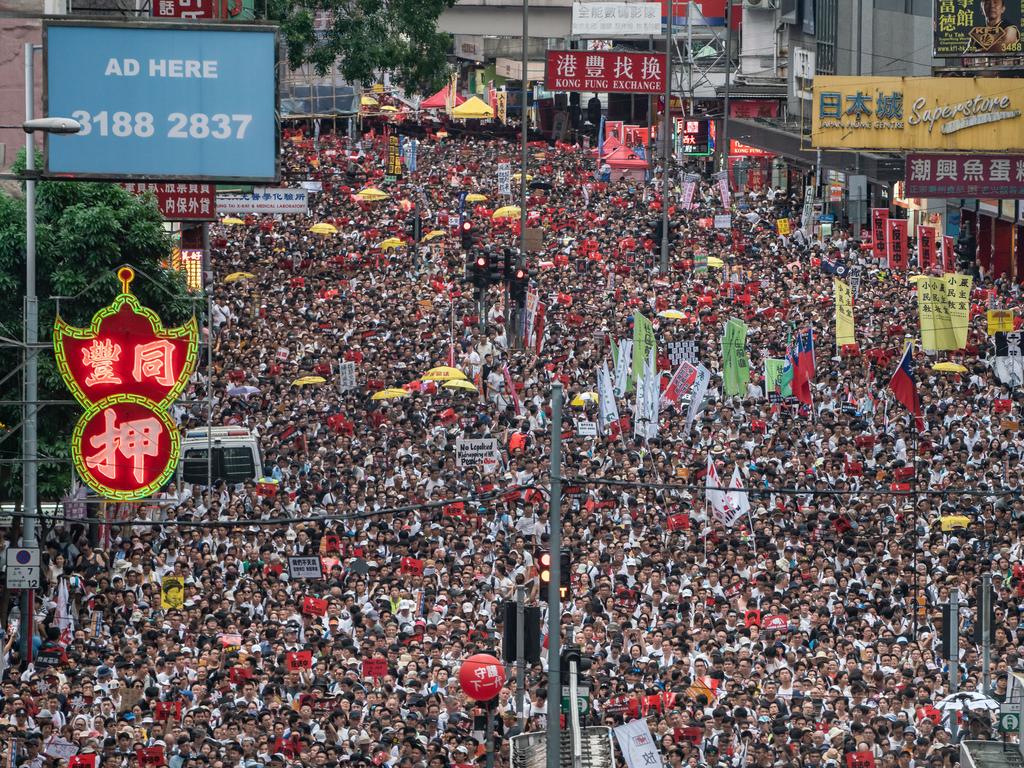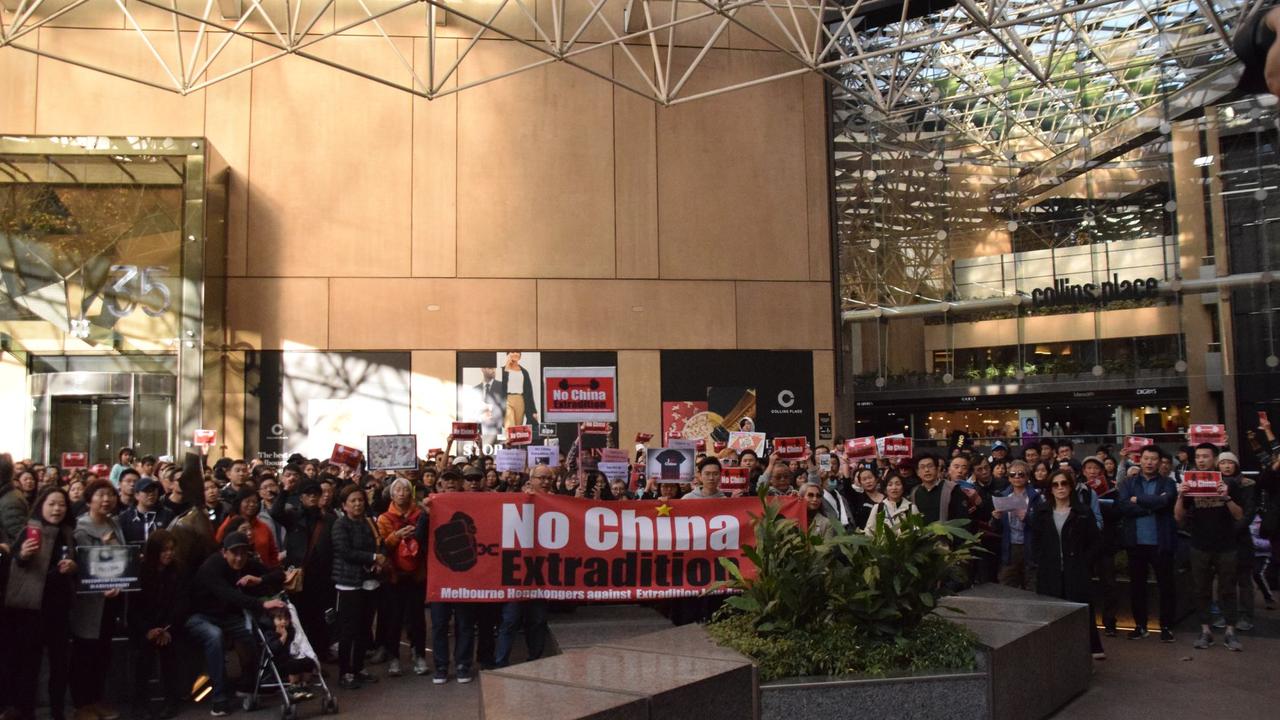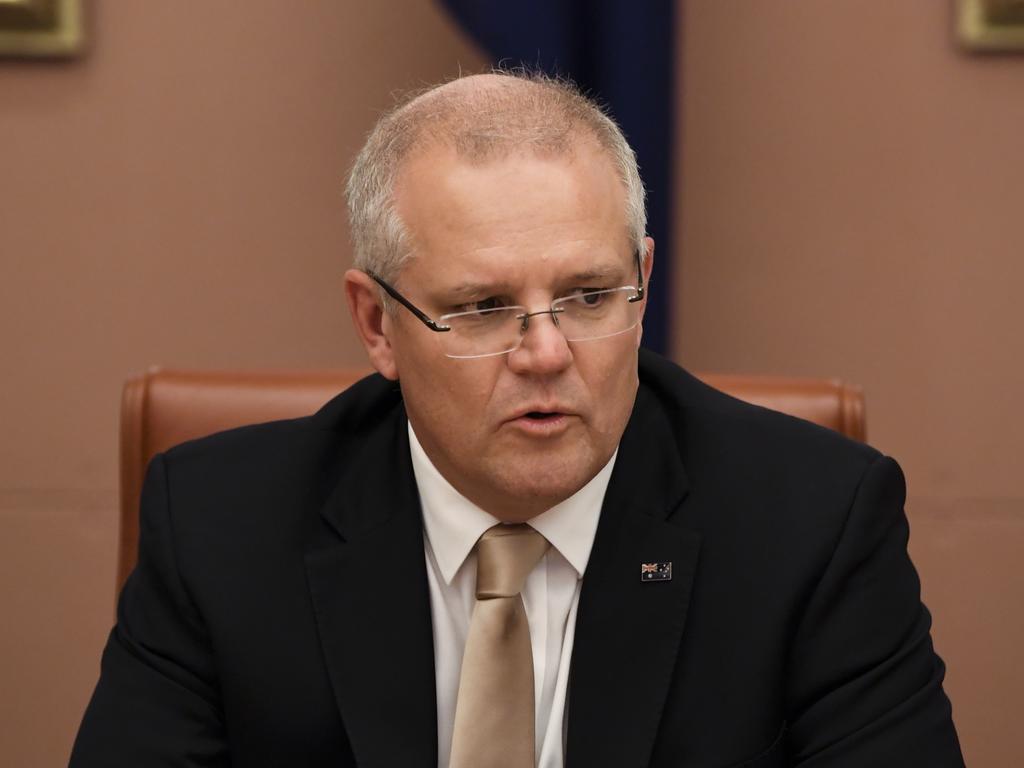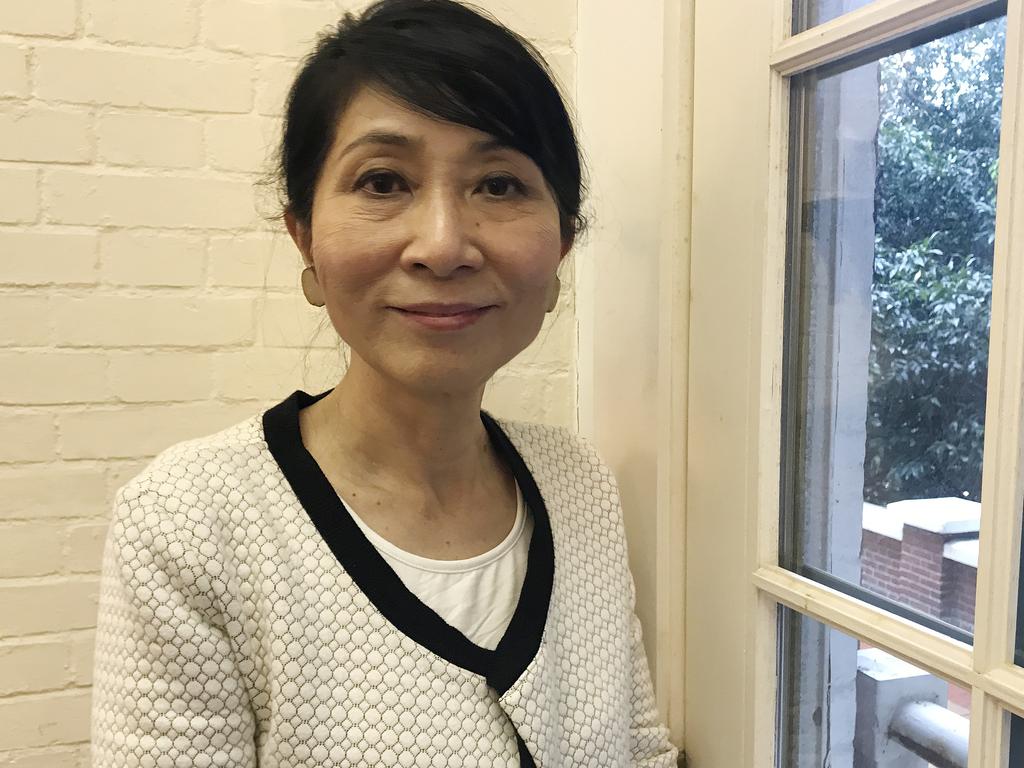‘Step up for us’: Australian government urged to condemn Hong Kong’s controversial extradition bill
As over a million people took to the streets of Hong Kong in protest, our own government was in the firing line over its silence.
You’ve no doubt heard about the mass protests in Hong Kong yesterday.
Over a million people took to the streets over a controversial bill to allow extradition from the territory to mainland China, marking its largest protest since Hong Kong’s handover to China in 1997.
But you may have missed the smaller protests over the issue cropping up across Australia at the same time.
RELATED: Controversial law could change Hong Kong forever
Yesterday supporters of Hong Kong in Sydney, Canberra, Melbourne and Brisbane took to the streets to oppose the controversial extradition bill.
But what makes it relevant here? And what exactly are they hoping to achieve?
HOW HONG KONG LAW AFFECTS AUSTRALIANS
There are currently around 100,000 Australians residing in Hong Kong.
Hundreds of thousands of us go to Hong Kong as tourists and in transit — any of whom could be subject to punishment by the Chinese government if this law passes.
“As an Australian, you might not have committed a crime in Chinese territory, and you might think this does not affect you. Well, unfortunately, this is not true,” said Zion Lo, from the Australia-Hong Kong Link, a community organisation based in Melbourne that helped promote the local rallies.
“If China believes that you are a foreign threat, and if you are travelling through HK, you might be extradited to China, imprisoned and arbitrarily punished.
“All it takes is if there’s a report against you, and you would bear the full responsibility to prove your innocence without access to a lawyer.”
In other words, it’s not just Hong Kong citizens or foreigners temporarily working there who are at risk. If you or anyone you know gets on a plane there, you’re at risk too.


#latestnews Australia's #hongkong community rallies against China's #extradition laws. Thousands of people turn up in Sydney, Melbourne, Brisbane and Perth. pic.twitter.com/0hmiiz509r
— Maree Ma (@maree_jun) June 9, 2019
International human rights lawyer Simon Henderson told news.com.au that any Australian who travels or transits through the city will be “directly impacted” upon setting foot on Hong Kong soil.
“The reason this is so significant for any individual is because they will be subject to an unfair trial; arbitrary detention; potential torture and a legal system that doesn’t protect human rights,” he said.
Last December, two Canadians were detained and formally arrested by the Chinese government for spying.
Former diplomat Michael Kovrig was charged with gathering state secrets, and businessman Michael Spavor was charged with stealing and providing secrets for overseas forces, the South China Morning Post reported.
“Today we still don’t know where Kofrig and Spavor are,” said Lo. “They do not have access to lawyers. Clearly, China doesn’t have a clear concept of fair trials and has consistently engaged in politically motivated prosecutions. China has declared to the world that it does not and will not have an independent judiciary.”
SILENCE FROM THE AUSTRALIAN GOVERNMENT
The smaller protests in Australia were not just targeting the governments in Hong Kong or China. They wanted to send a message to Canberra too.
While the UK, US, Canada and European Union have all publicly spoken out against the Hong Kong proposal, the Morrison Government has in public remained largely silent.
The Australian Department of Foreign Affairs and Trade said it was monitoring the situation but is still yet to issue a move to oppose it.
“The Australian government is taking a close interest in the proposed amendments to the Fugitive Offenders Ordinance in Hong Kong, including to ascertain any impacts on Australian residents,” a spokesperson told news.com.au in a statement.
“The Australian Consul-General in Hong Kong has raised the issue with senior levels of the Hong Kong government.”

Activists have urged the Morrison Government to issue a stronger stance and “step up for people who worked and fought hard to uphold the Australian sovereignty”.
“The international community has not received a clear political gesture from the Liberals government about its views on this matter, except an expression of ‘concern’ and ‘monitoring’,” said Lo.
“We urge the Australian government to immediately condemn this unnecessary law and support the people of Hong Kong to fight for a fairer and just democratic society.
“We also demand the Australian government revoke and withdraw its extradition agreements with Hong Kong and China should the bill be passed and relax the requirements of refugee visa applications submitted by the people of Hong Kong under political persecution in the future.”
Claudia Mo, a pro-democratic member of the Hong Kong Legislative Council, has also urged Mr Morrison to address the issue.
“The Australian government must announce its stance on this very unacceptable law as soon as possible,” she told news.com.au last week. “The European Union of 28 countries have done it. America, Canada have made it all very clear.
“It’s about time Australia joined the international community in condemning this very evil law in Hong Kong.”
Mr Henderson said it’s quite common to see the Australian government address human rights issues with China in private rather than in public.
“There’s this perception, perhaps, that if we conduct advocacy through private mechanisms rather than public, we can achieve a better outcome,” he said. “But to achieve these outcomes, you have to combine the two.”
He noted that the Australia-China relationship is bound by a rules-based system. “If we’re going to speak up about the importance of the rules-based system, like engagement on trade, we also need to speak up about these issues when it’s on the basis of human rights and legal issues.”
COULD THIS HURT OUR RELATIONSHIP WITH CHINA?
The passing of the law could impact Australia’s crucial relationship with China.
Mr Henderson warned Beijing could use the law to its advantage if relations with Canberra were to go sour.
“We could see an Australian national detained under an extradition request in Hong Kong in retaliation for a downgrading in that relationship,” he said, citing the detaining of Kovrig and Spavor as an example. “We do know publicly from Chinese government stats that those were in part retaliatory measures.
“We also know the Chinese government regularly engages in retaliatory measures in response when it feels its feelings have been hurt.
“I think we really need to consider how much risk this is going to generate.”
The Hong Kong extradition law is familiar territory for Canberra.
In 2017, the then-Turnbull government was forced to pull a contentious China-Australia extradition treaty following objections within Coalition ranks and from legal officials.
Their concerns weren’t too different from those now being felt in Hong Kong. The Law Council of Australia concluded China “does not act in accordance with procedural fairness and rule of law standards in criminal proceedings”.
A THREAT TO HONG KONG’S FREEDOM
Hong Kong currently has extradition agreements with 20 countries — including Australia, the US and the UK — but mainland China has never been one of them.
The proposed treaty came about after a 19-year-old Hong Kong man allegedly murdered his 20-year-old pregnant girlfriend in Taiwan last year.
The man fled Taiwan and returned to Hong Kong last year, and Taiwanese officials now want him back to face trial.
The push is being led by Hong Kong Chief Executive Carrie Lam who has been accused of “carrying out Beijing’s bidding”.
In making her case, Ms Lam repeatedly stressed there were provisions to stop people from being persecuted for political crimes, religious beliefs or being put at risk of torture.
But some judges say China’s increasingly close relationship with Hong Kong and the limited scope of extradition hearings would leave them little room to fight back.
They worry if they tried to stop high-profile suspects from being sent across the border they would be exposed to criticism and political pressure from Beijing.

Ms Mo accused Ms Lam of being a “puppet” for the Chinese government.
“Carrie did an interview in 2017 where she said ‘I’m no Beijing puppet’. But she’s ever since proved she’s exactly that,” she said.
“Carrie Lam has been a career civil servant for 40 years. She’s used to saying ‘Yes minister, yes boss, I’ll do whatever is required of me’. How could she start such a controversy without Beijing’s blessing? I don’t think she would have done anything like this without seeking Beijing’s approval. She’s just carrying out orders. It’s obvious.”
Hong Kong returned to Chinese rule in 1997 but is semi-autonomous; China allows for a “one country, two systems” rule by which the city is allowed to preserve its current economic and social systems until at least the year 2047.
But this law — which would give China the power to summon Hong Kong residents at the drop of a hat — symbolises a threat to all of these freedoms.
Despite the massive scale of the June 9 protests, Mr Henderson does not believe Ms Lam will offer substantive concessions.
“But I don’t think that’s really the point for the protesters,” he added. “It’s about expressing concerns for their rights and their displeasure with the mainland’s growing influence.
“But I do think increased international engagement, including from foreign ministers, prime ministers and business leaders, could still have an impact.”
CHINA ISSUES WORRYING RESPONSE TO PROTESTS
China has responded to the June 9 protests by labelling the protesters pawns of “foreign” powers.
An official Chinese newspaper said certain “foreign forces” were trying to hurt China by creating chaos and unrest in Hong Kong.
“Any fair-minded person would deem the amendment bill a legitimate, sensible and reasonable piece of legislation that would strengthen Hong Kong’s rule of law and deliver justice,” an editorial in the China Daily says.
“Unfortunately, some Hong Kong residents have been hoodwinked by the opposition camp and their foreign allies into supporting the anti-extradition campaign,” the English-language publication added.
Human rights groups have repeatedly cited the alleged use of torture, arbitrary detentions, forced confessions and problems accessing lawyers in China.
Hong Kong officials have defended the plans, though they have raised the threshold of extraditable offences to crimes carrying penalties of seven years or more.
Mr Henderson dismissed accusations of foreign interference. “I think there is a perception that speaking up about these issues can be seen as foreign interference … but we are directly talking about the rights and wellbeing of Australian nationals here, and the impact upon Australian business.
“That should be core and central to the foreign policy of any government, and particularly the Australian government, as we have such strong connections with Hong Kong.”



